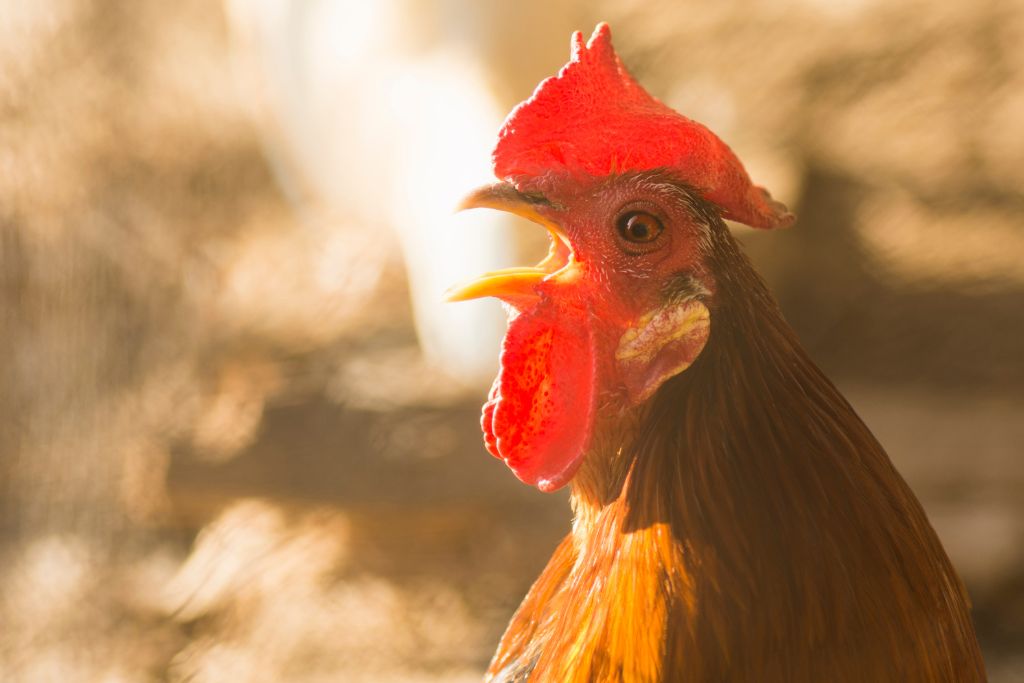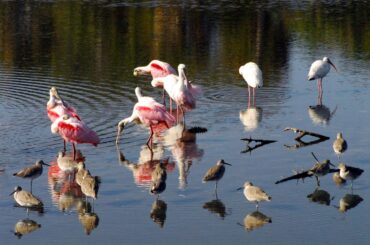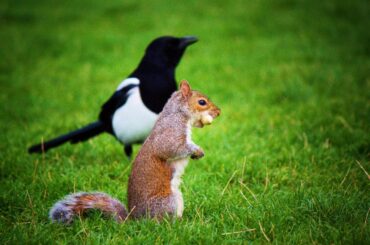Do you ever wonder why roosters crow every morning? Do they just want to wake us up, or is there more to it? What makes this sound so unique?
Imagine a rooster crowing loudly,waking you up. Many people, especially in the countryside, hear this sound every day. Roosters don’t just crow to say “good morning!” It’s a behavior that has puzzled scientists and farmers alike.
Understanding why roosters crow can help us learn more about animals and nature. It’s a familiar sound, but the reason behind it is a fascinating mystery waiting to be unlocked.
Why Do Roosters Crow?
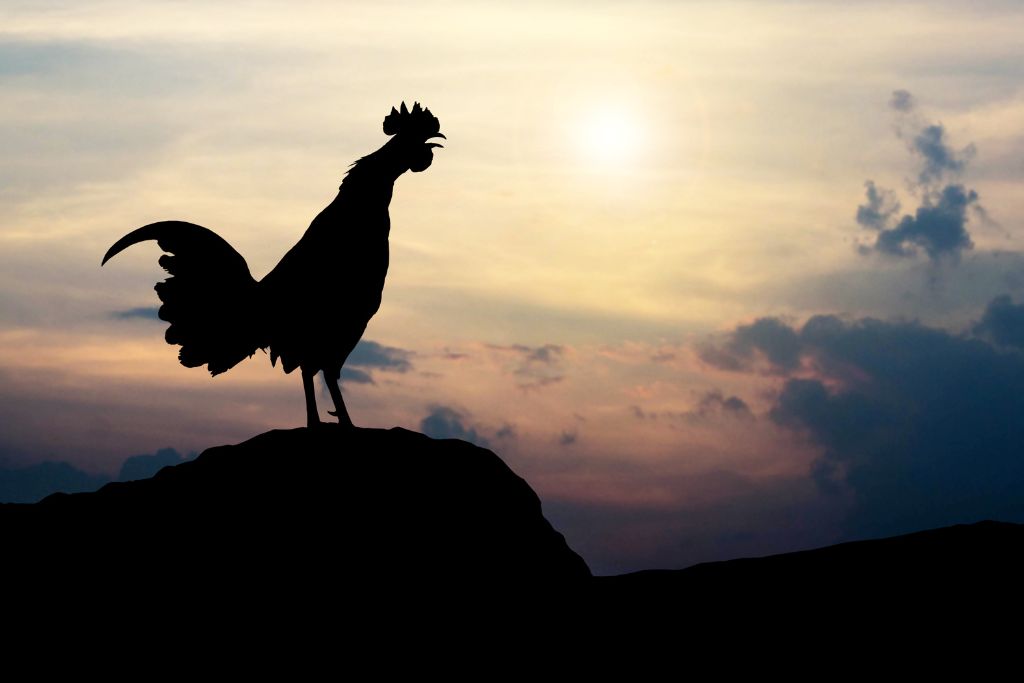
Roosters crow for many reasons. Roosters use this loud sound to mark their territory, talk to other roosters, and show who’s in charge. It’s not random noise; they communicate this way.
In the wild, roosters crow to keep other roosters away from their space. On a farm, they might crow to call the hens or to tell everyone that the day has started.
Marking Territory
Roosters mark their territory by crowing, a behavior that is vital to them. When a rooster crows, he sends a clear message to other roosters that he owns this area. If another rooster enters his space, he crows more frequently. It’s like putting up a “No Trespassing” sign in a language only other chickens understand.
Communication with Other Chickens
Communication is vital in the chicken world, and crowing plays a big part. A rooster might crow to call the hens for food or to gather them together. If there’s danger nearby, like a fox or a hawk, a rooster’s crow serves as a warning signal. It’s not just noise; the rooster talks to the rest of the flock this way.
Showing Dominance
In a flock of chickens, there’s usually one rooster in charge. He crows to show dominance and remind the other chickens that he’s the boss. If a younger rooster tries to crow, the dominant one might chase him away or crow louder. It’s a way to keep order in the flock and ensure everyone knows who’s in charge.
Responding to Sounds and Light
Roosters don’t just crow for their reasons; they also react to what’s happening around them. If a car horn honks or a dog barks, a rooster might crow in response. When the sun comes up in the morning, the change in light can trigger crowing. It’s like the rooster saying hello to a new day or reacting to something unexpected. It shows how in tune they are with their surroundings.
When Do Roosters Start Crowing?
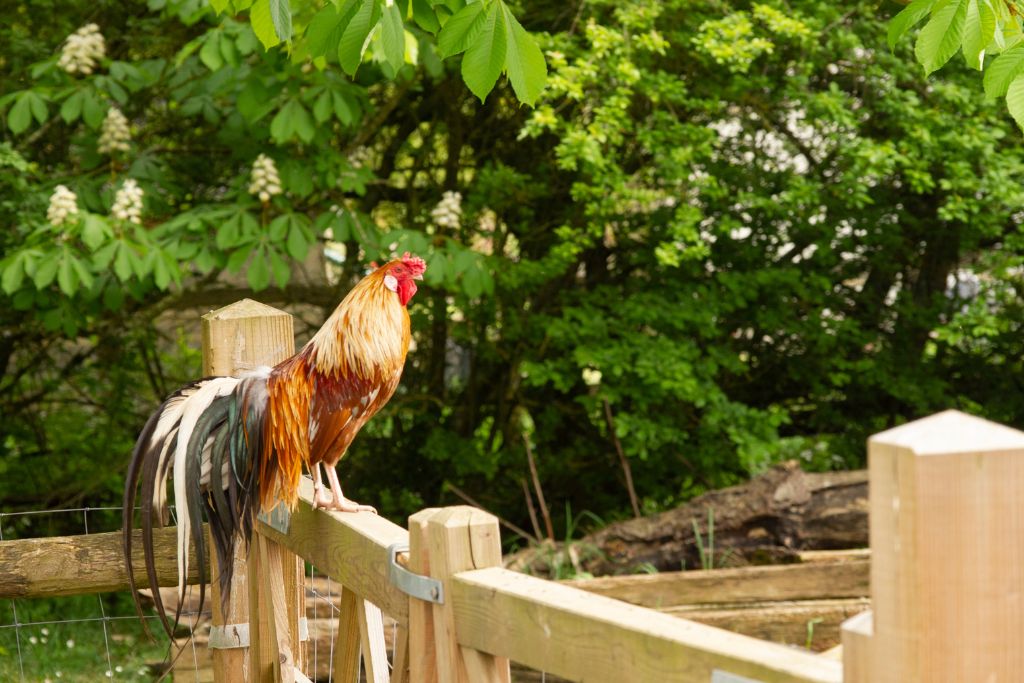
Most roosters start crowing when they’re about four to five months old. That’s when they begin to mature and become adults. But roosters differ from one another. Some might begin crowing earlier, and others might take a little longer.
The breed of the rooster, how quickly he grows, and who he lives with can all affect when he starts to crow. A young rooster might start crowing later if he lives with older ones. If he’s the only rooster around, he might begin earlier. It’s a mix of nature and what’s happening around him.
Why Do Roosters Crow All Day?
Roosters don’t just crow in the morning; some crow all day. Why? It could be for many reasons. Maybe the rooster sees something that excites or scares him. Perhaps he’s trying to impress the hens or keep other roosters away.
Sometimes, a rooster crows all day because something’s not right. He might crow more if he’s stressed, sick, or something in his home is bothering him. A rooster crows all day to tell the world he needs help or something’s wrong. Understanding this behavior can give clues about what’s happening in his life.
Understanding Rooster Behavior: Tips for Caregivers
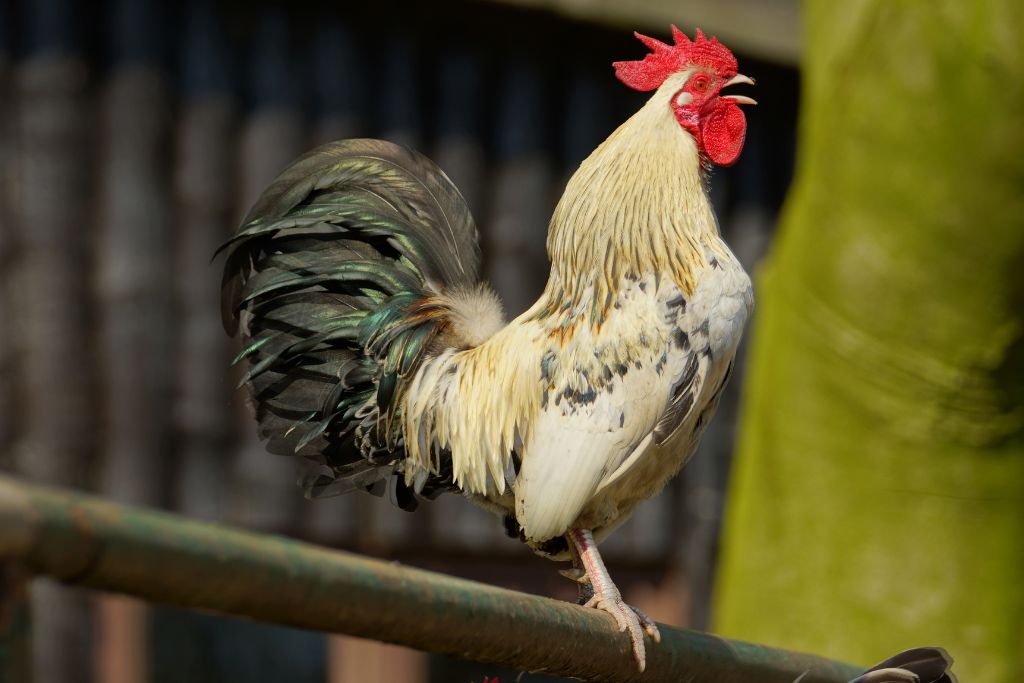
Roosters are fascinating creatures, and their crowing is just one part of their complex behavior. If you raise or care for roosters, understanding why and when they crow can help you take better care of them.
Recognizing Different Types of Crowing
Roosters have various crows for different situations. A warning crow might be loud and urgent, while a mating call might be softer and more musical. By paying attention to the sounds and watching how the roosters act, you can learn to recognize what each crow means. It’s like learning a new language – the language of your flock.
Creating a Calm Environment
A calm and safe environment can reduce unnecessary crowing. Provide shelter from the weather, fresh food and water, and a place to roost at night. Keep things consistent so the roosters know what to expect. A happy rooster is usually a quieter rooster, and understanding what makes them feel secure can make a big difference.
Crowing and a Healthy Flock
Crowing is a normal part of being a rooster, but changes can signify something’s wrong. If a rooster suddenly crows more or less, or if his crow sounds different, it might mean he’s stressed, sick, or injured. Regularly watching and listening to your roosters can help you catch problems early and keep your flock healthy.
Integrating New Roosters
Adding a new rooster to your flock can cause some crowing chaos. The new guy and the old ones will crow to figure out who’s in charge and where everyone fits. Integrating a new rooster into a flock can be noisy, but it’s usually temporary. If you give them space, time, and patience, they’ll usually work things out.
Crowing and Other Behaviors
Crowing isn’t just about making noise; it’s tied to other behaviors like feeding, mating, and protecting the flock. A rooster might crow to call the hens to a tasty treat or to warn them to hide from a hawk. Watching how your roosters act when they crow can give you insights into their needs and wants.
Final Thoughts
Understanding why roosters crow is more than just solving a farmyard mystery. It helps us learn about animal behavior and communication. When we know why roosters crow, we can care for them better and understand what they need.
Roosters crowing is a sound that connects us to nature and the world of animals. It’s a reminder that animals have their ways of talking and living. By listening to and learning about them, we become more connected to the world. It teaches curiosity, care, and respect for all living things.
FAQs
What Does It Mean if a Rooster Crows All Day?
A rooster crowing all day might be reacting to something in his environment, trying to impress hens, or signaling that something is wrong, like stress or illness.
How Do I Get My Rooster to Stop Crowing?
You can reduce crowing by providing a calm environment, keeping a consistent routine, or using a crowing collar designed for roosters.
Why Does a Rooster Cockadoodledoo?
The “cockadoodledoo” sound is a rooster’s way of communicating, marking territory, or responding to changes in light and sound.
Why Do Roosters Crow When Hens Lay Eggs?
Roosters may crow when hens lay eggs to announce the event or to gather the flock together.
Do Roosters Crow When Hungry?
Yes, some roosters might crow when they’re hungry as a way to call for food.
Do Sick Roosters Crow?
Sick roosters might crow less or more, depending on the illness. Changes in crowing can be a sign that something’s not right.
What Age Does a Rooster Crow?
Most roosters start crowing around four to five months old, but it can vary based on breed and environment.
What Does It Mean When a Rooster Crows at Night?
Crowing at night might be a response to a disturbance, a change in light, or a sign of stress or illness.
Why Won’t My Rooster Stop Crowing?
Constant crowing might be due to stress, mating instincts, territorial behavior, or health issues.
How Do You Stop Chickens from Crowing?
Stopping chickens, especially roosters, from crowing can be challenging. Providing a calm environment, keeping a consistent routine, or using specialized equipment, like crowing collars, might help.

